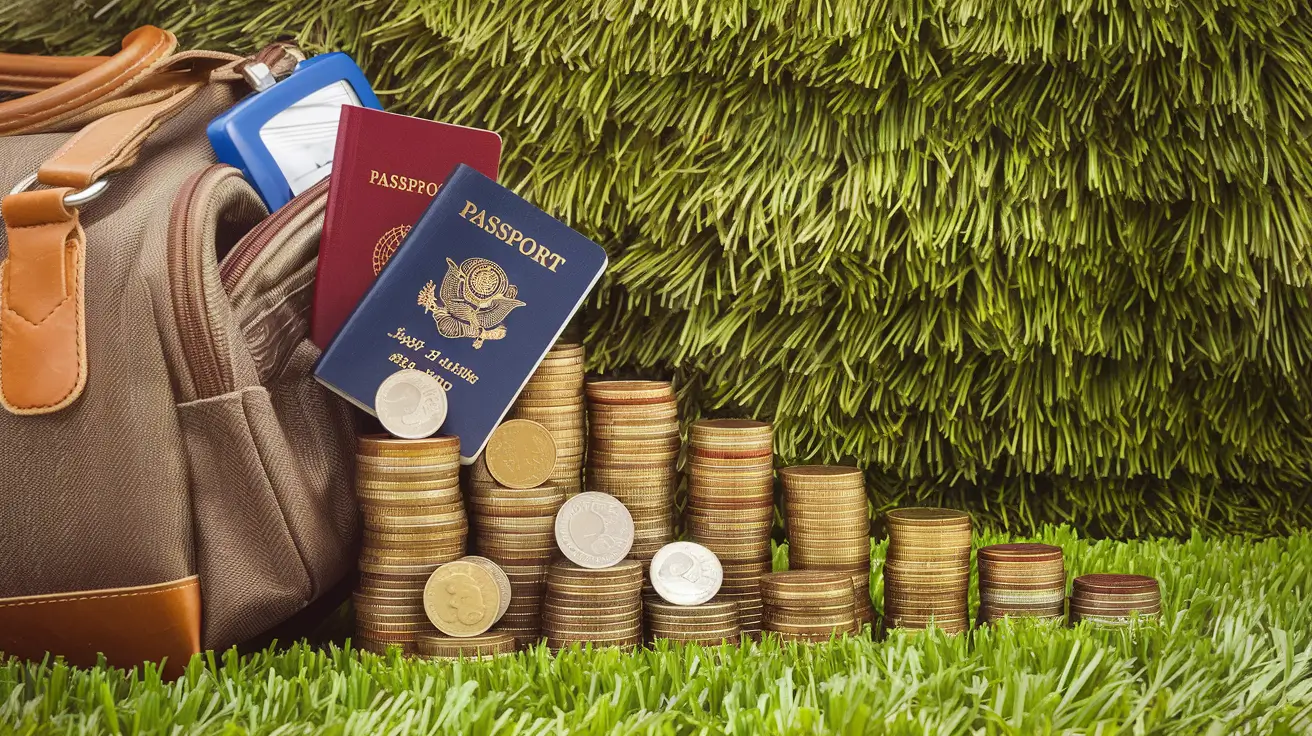Travel and Money

When I first visited Kenya, managing my travel finances seemed daunting. Between fluctuating exchange rates and unexpected expenses, I quickly realized the need for smart financial planning. Here, I will share the most effective travel finance management tips I discovered, which saved me money and made my trip smoother.
Here is a quick overview of 4 major travel finance management tips to help you as a tourist in Kenya:
Managing your money wisely in Kenya starts with understanding the best ways to handle currency exchange and local transactions.
Exchanging currency at the airport can be convenient but often comes with unfavorable rates. Instead, opt for reputable forex bureaus in major towns or use local banks.
Tip from Personal Experience: "I found that using ATMs in Nairobi provided better exchange rates compared to airport kiosks. Always opt for ATMs inside banks for security."
ATMs offer competitive exchange rates and are widely available in cities and towns. Ensure your card is activated for international use and be mindful of withdrawal fees.
M-Pesa is a mobile money service that is ubiquitous in Kenya. It allows you to send, receive, and store money using your mobile phone. Setting it up is simple and can be done at any M-Pesa agent.
I like using M-Pesa because it's secure and widely accepted. Here’s how you can set it up.
Creating and sticking to a budget is crucial to managing your finances during your trip.
To avoid overspending during your trip to Kenya, start by creating a detailed travel budget. Break down your expenses into categories such as accommodation, food, transportation, activities, and souvenirs. Set a daily limit for each category to keep your spending in check. Alternatively, you can leave that task with Kenya Peaks Adventures team. The team is more experienced and comprised of passionate locals who want to genuinely help visitors.
Tracking Expenses
Use apps like Trail Wallet or Spendee to track your daily expenses. These apps allow you to input your expenditures in real-time, categorize them, and monitor your budget. This way, you can see where your money is going and make adjustments if necessary.
Personal experience note: "Using an app like Trail Wallet, I tracked my daily expenses and ensured I stayed within my budget. This app was a lifesaver in managing my finances on the go."
Here’s a sample budget for a week-long trip to Nairobi, Kenya:
|
Category |
Daily Limit |
Total for 7 Days |
|
Accommodation |
$90 |
$630 |
|
Food |
$40 |
$280 |
|
Transportation |
$15 |
$105 |
|
Activities |
$55 |
$385 |
|
Souvenirs |
$10 |
$70 |
|
Total |
$210 |
$1470 |
If you create and follow such travel budget, you can enjoy your trip without financial stress.
Being smart about where you stay and what you eat can significantly cut down your travel expenses.
Kenya offers a range of budget-friendly accommodations, from hostels and guesthouses to Airbnb rentals. Look for places that offer amenities like free breakfast or kitchen facilities to save on food costs.
Tip from Personal Experience: "Staying in hostels and eating at local eateries like Java House not only saved me money but also gave me a taste of authentic Kenyan culture."
Eating at local restaurants and street food vendors is a great way to save money and experience authentic Kenyan cuisine. Avoid international chains and opt for local favorites.
Renting places with kitchen facilities allows you to prepare some of your meals, which can be much cheaper than dining out for every meal.
Navigating around Kenya efficiently can help you save both time and money.
Kenya has a robust public transport system, including matatus (minibuses) and buses. Matatus are a popular and affordable way to travel within cities and between towns, but they can be crowded and unpredictable.
Tip from Personal Experience: "For short distances, I relied on Uber and found it to be cheaper and more reliable than local taxis. Always check the fare estimate before booking."
Using ride-sharing apps like Uber and Bolt is a convenient and safe option for getting around, especially in major cities like Nairobi and Mombasa. They offer transparent pricing and a safer alternative to hailing taxis off the street.
Renting a car can be a good option if you plan to explore more remote areas. It provides flexibility and convenience but can be more expensive. Look for deals and book in advance to get the best rates.
Keeping your money and personal belongings safe is paramount to enjoying a worry-free trip.
Avoid carrying large amounts of cash. Instead, use a combination of cards and mobile money services. Keep valuables in a money belt or hidden pouch to protect against pickpockets.
Tip from Personal Experience: "I kept most of my cash in a money belt and only carried small amounts in my wallet. This minimized my risk of losing a significant amount in case of theft.
Credit cards are widely accepted in hotels, restaurants, and shops in major cities. However, always have some cash on hand for smaller establishments and markets.
Invest in comprehensive travel insurance that covers medical expenses, theft, and cancellations. This can save you significant money and stress if anything goes wrong during your trip. Recommended providers include World Nomads and Allianz.
Milburn: I’m Milburn, a passionate blogger and proud dad of two from Philadelphia, USA. My wife and I share a deep love for travel, and since 2015, we've explored over 40 countries together. Kenya stands out as one of our favorite destinations in Africa. The vibrant culture, breathtaking landscapes, and warm hospitality left a lasting impression on us, and we can’t wait to return and discover even more of this incredible country.